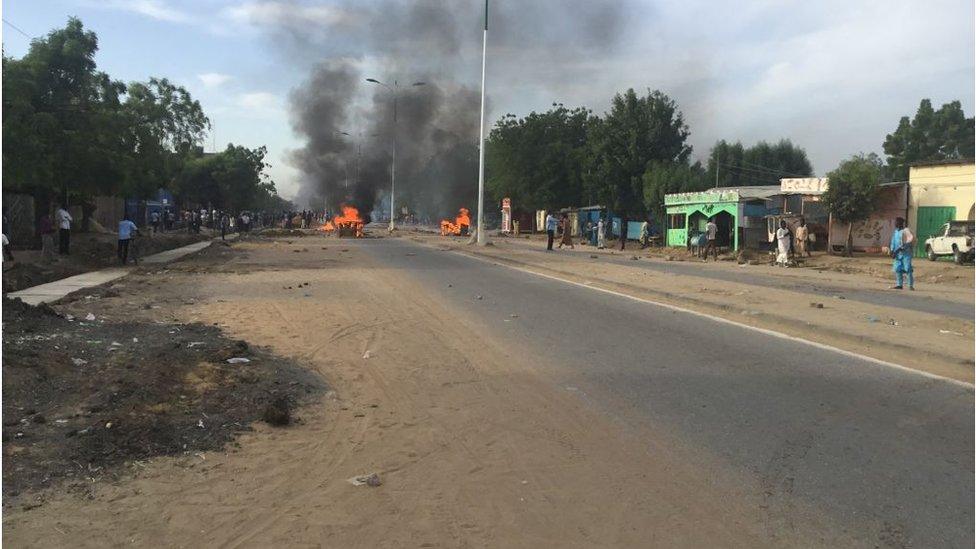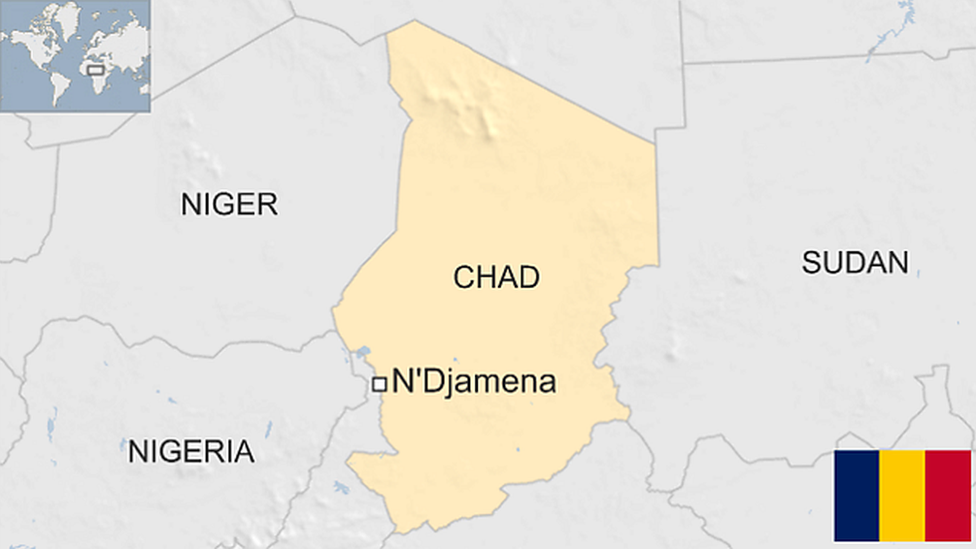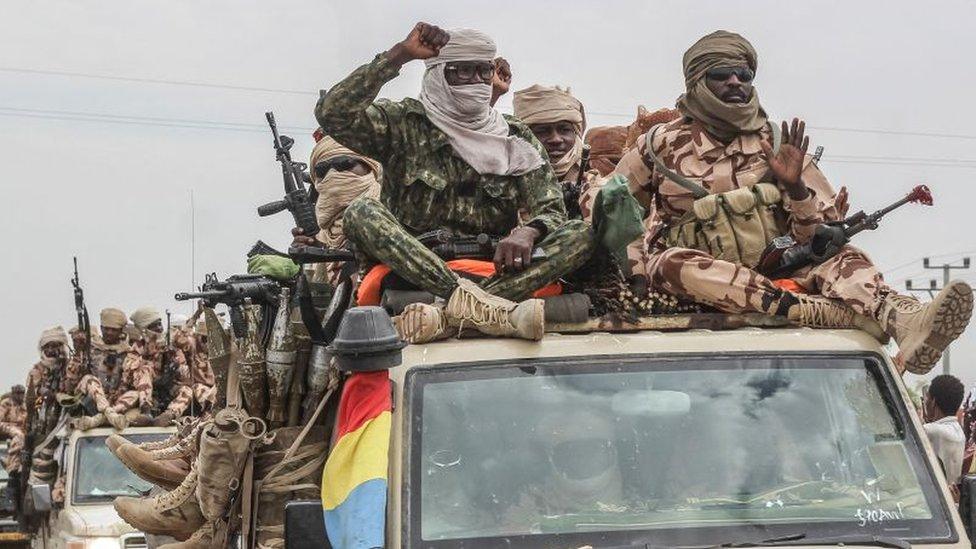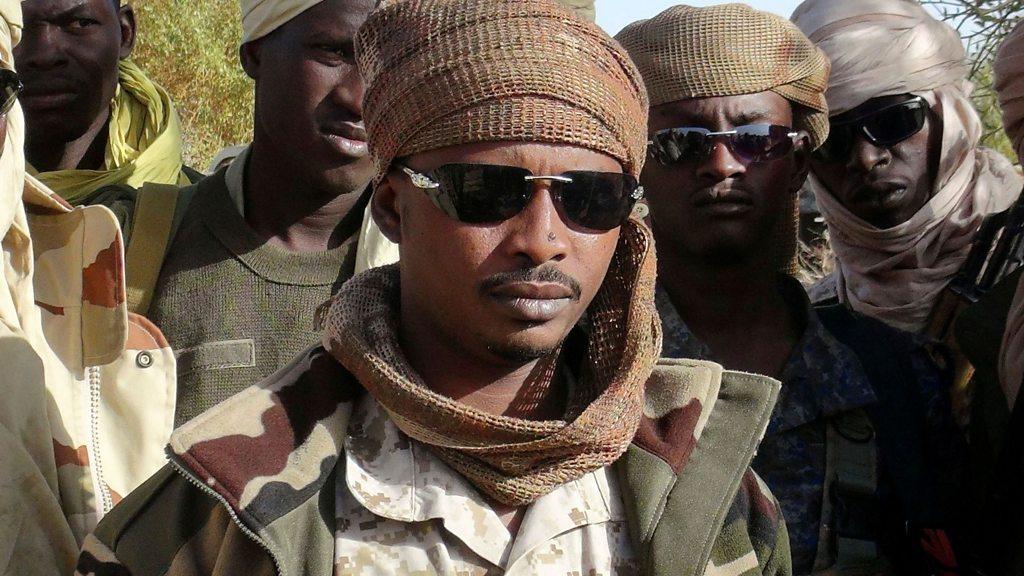Chad protests: Overnight curfew after protests turn deadly
- Published

The protests in several parts of Chad were to demand a return to civilian rule
There has been an overnight curfew in Chad's capital, N'Djamena, and other towns, in the wake of violent clashes between pro-democracy protesters and security forces on Thursday.
Around 50 people have died, the military-led government says.
In an unusual move, the US embassy to Chad posted a photo of its ambassador kneeling on a blood-stained street.
A US statement, external expressed deep concern and called for de-escalation but the opposition says protests will continue.
Allow Facebook content?
This article contains content provided by Facebook. We ask for your permission before anything is loaded, as they may be using cookies and other technologies. You may want to read Meta’s Facebook cookie policy, external and privacy policy, external before accepting. To view this content choose ‘accept and continue’.
Thursday's unrest took place on the day when President Mahamat Idriss Déby Itno was originally intended to step down, but a meeting earlier this month extended his rule for another two years.
He was named president by the military in 2021 following the death of his father, Idriss Déby Itno, who had been in power since 1990.
The US has also written of its support for the cause of the protesters - a transition to democracy: "The United States believes that a government selected by the people of Chad in a free and fair election, overseen by independent institutions, will offer the best hope for Chad to emerge from decades of conflict."
This came after people dressed as civilians cleared checkpoints and killed four people outside US embassy gates. It is not clear why the US embassy was targeted.
The African Union (AU) has also condemned the violence.
"I strongly condemn the repression of the demonstrations which led to the death of men in #Tchad," Moussa Faki Mahamat, the chair of the AU commission, posted on Twitter., external, using the French name of the country.
The UN and EU have also called for calm.
The authorities say an investigation will be launched, and those responsible for the deaths of members of the security forces will be tried by a special commission.
One of the acts allegedly committed by the protesters was to ransack and torch the headquarters of the newly appointed Prime Minister Saleh Kebzabo's political party.
Mr Kebzabo described the acts of protesters as "an armed popular uprising to seize power by force", according to the Reuters news agency.
In a press conference, the country's spokesperson accused protestors of taking part in an insurrection, qualifying their actions as "not peaceful".
Chad recently formed a new unity government after negotiations between the military junta, political parties, and armed groups. However, part of the opposition boycotted the initiative that they deemed not inclusive.
Related topics
- Published9 July 2024

- Published9 May 2021

- Published21 April 2021
